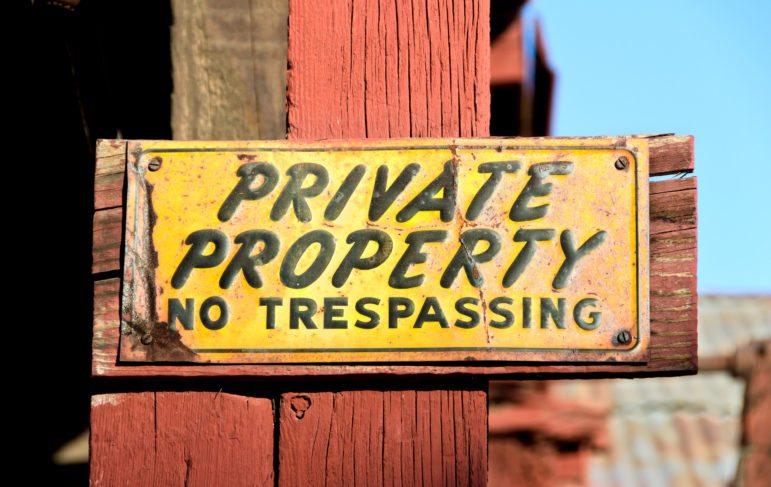Most people understand trespassing as entering private property without permission. While this is a good start, it’s important for residential and commercial property owners to know everything about trespass laws, from giving notice to pursuing legal action against trespassers. Let’s start by discussing what is considered trespassing under Texas property ownership laws.
What defines trespassing?
Trespassing in general terms is defined as an encroachment upon someone’s private property without permission, but it includes more than most people think. In order for trespassing to occur, one of two things must happen:
- The trespasser was given effective notice that entry was forbidden.
- The trespasser received notice to depart the property and failed to do so.
If someone leaves something on the property after being asked to move it or stays after being asked to leave, that is also considered trespassing, as telling a trespasser to leave is equivalent to having a “no trespassing” sign. Additionally, subsurface encroachment, such as damage to surrounding land or well drilling, is also considered trespassing.
Giving Notice
Property owners can protect themselves against trespassers by “giving notice,” which can be done in many ways. Most people immediately think of a “no trespassing” sign, but any kind of written or oral communication constitutes notice against trespassing. Any fencing or other enclosure obviously intended to keep visitors out — or livestock/other animals in — is also considered effective notice.
In addition, the visible presence of a cultivated crop in any phase of growth or harvest automatically counts as notice of forbidden entry. In Texas purple paint in long, vertical lines on trees or fence posts can be used to give notice against trespassing. If you’re going to use purple paint, visit the Texas Parks & Wildlife website to ensure that your markings are made properly.
Criminal Trespass
While it isn’t considered as serious as burglary, private property trespassing is a criminal act that could earn the defendant time in jail. If charged, a criminal trespasser faces a Class B or C misdemeanor, both of which may include hefty fines and/or jail time.
Depending on additional elements of the case, the penalties may be increased. For example, trespassing is automatically a Class C misdemeanor if the defendant is carrying a deadly weapon. Intention to commit another crime while trespassing, such as assault or theft, automatically changes the charge to burglary, which is a felony in Texas and requires jail time.
Can you sue a trespasser?
Giving notice against entry isn’t the only thing property owners can do to protect their homes or businesses. Property owners can sue a trespasser for damages if they occur. Filing a successful trespassing claim requires the plaintiff to prove several things:
- Lawful ownership of the property
- Physical, intentional, unauthorized and voluntary entry
- That the trespass caused physical or interest-based damages to the plaintiff
Dan Burke is an experienced real estate lawyer in San Antonio with 15 years of experience advising home and business owners alike. For more information about defending your property against trespassers and other potential real estate damages, call on Dan Burke, Attorney at Law.
Contact us today to schedule your free consultation!





